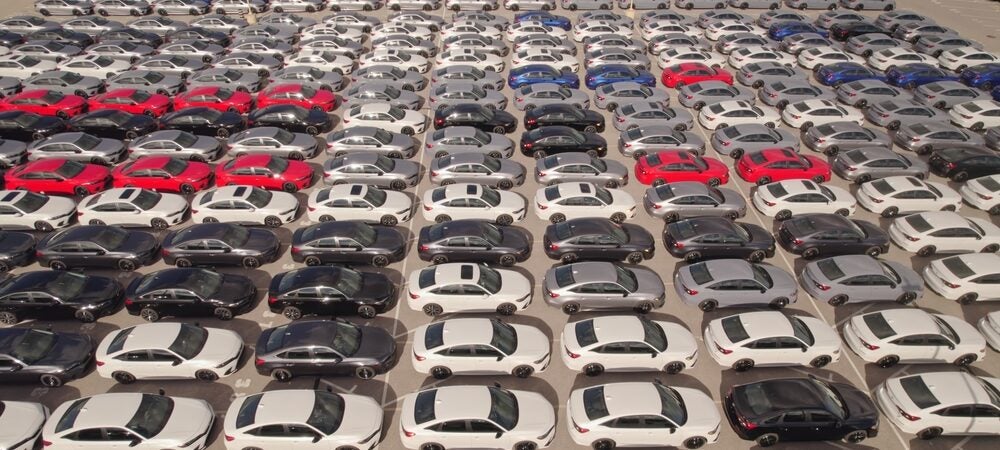In recent years EV producers in China, both Chinese and foreign, faced different policy-induced incentives to export to the EU. Singling out Chinese subsidies to EV producers is sophistic.
On 13 September 2023 European Commission President von der Leyen announced an antisubsidy investigation into EVs imported from China. She asserted that the price of Chinese EVs “is kept artificially low by huge state subsidies”
Under WTO rules for anti-subsidy investigations asserting subsidies exist is not enough. Those subsidies must alter market outcomes in the EU in ways that harm local rivals. In turn, this begs the question as to which public policies have influenced Chinese incentives to export EVs to the EU in recent years? An investigation reveals that multiple policy initiatives bear down on Chinese exporters, complicating the task of isolating the effects of Chinese producer subsidies. Three pieces of evidence are germane.
First, for sure Beijing has announced plans—even “strategic plans”—for the EV sector. But plans don’t always translate into tangible state action—so showing a plan exists doesn’t prove subsidies harmed EU industry. Likewise, repeating opaque consultancy “findings” of the total amount of subsidies ($57bn in one case) for Chinese EVs isn’t good enough. Those subsidies could be purchaser incentives, not grants to expand capacity or to lower production costs. Different subsidies do different amounts of harm to foreign rivals and some may not harm foreign rivals at all.
What is undeniable is that publicly-listed Chinese EV producers have reported in their financial reports receiving state-provided financial grants. Until recent years around twenty such reports were filed every year. In addition, in its 2022 10-K filing Tesla reported receiving land use rights from Shanghai’s local government and $76 million in state grants during 2022. EC officials wishing to impose import duties will, at a minimum, have to show how the form of these subsidies affected incentives to export to the EU.
Second, a major complicating factor is that, since at least 2015, China has been reducing purchaser incentives for EVs. By reducing the incremental profits earned from selling EVs in the Chinese market, the incentive to export has increased, relatively speaking. Apparently, this logic has not escaped European firms operating in China, the gist of which was captured in a recent report in the Financial Times: “China should do more to stimulate domestic consumption, European businesses have declared.” This reinforces the point that the form of subsidy matters and implies that foreign rivals aren’t adverse to higher Chinese subsidies when it suits their purposes.
Third, policy developments outside of China likely influenced the incentive to export EVs to Europe. Specifically, the first tranche of 25% import tariffs imposed by the Trump Administration on imports from China included electric and hybrid vehicles. Those duties came into effect in mid-2018 and, Chinese EV exports to the USA promptly fell. Part of the surge in Chinese EV exports to EU documented in Zeitgeist #13 was driven by US trade policy, not Chinese subsidies. Properly accounting for this is just one of the challenges facing EC investigating officials
Even after imposing a 25% import duty, Chinese exports to the USA rose more than 40-fold from 2019 to 2023. This should challenge any assumption that imposing sizeable EU import tariffs will choke off Chinese EV shipments. Any reprieve for US EV producers was, at best, temporary.
Inconvenient as it may be for some, simplistic narratives about ever more generous Chinese subsidies boosting EV exports should be disregarded. Plus, the tariff weapon may have much less punch than its advocates realise.
Simon J. Evenett is Professor of International Trade & Economic Development at the University of St. Gallen, Switzerland. He is also Founder of the St. Gallen Endowment for Prosperity Through Trade, the institutional home of two leading independent commercial policy monitoring initiatives, the Global Trade Alert and the Digital Policy Alert.
Fernando Martín is an Associate Director at the Global Trade Alert leading the Analytics team.
Zeitgeist_14_Public_policies_and_Chinese_export_incentives.01To read the full briefing as published by Global Trade Alert, click here.

